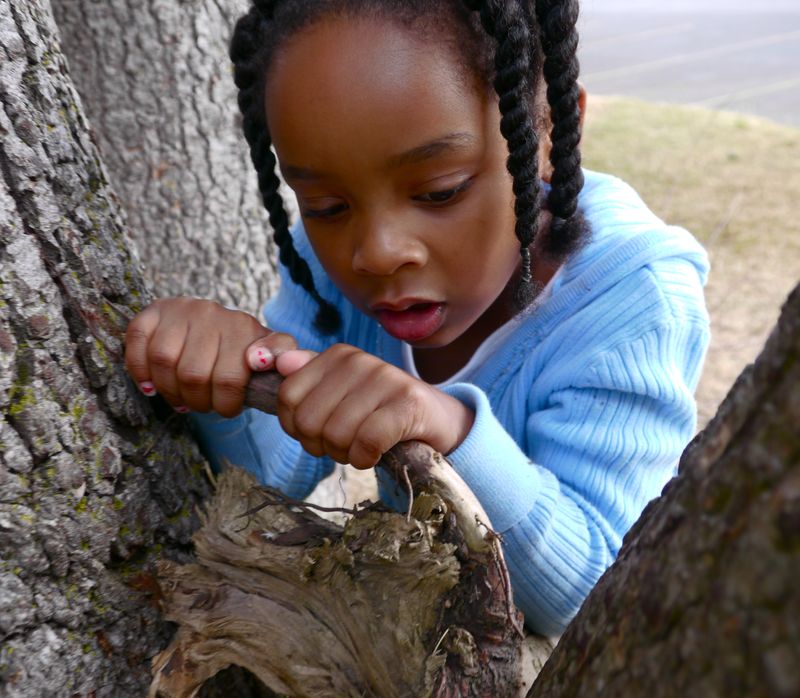Beginning Conversation

When the wind comes walking in the near woods, the little leaves of symphorine so whisper little whispers. I thinks they are telling me they were come here before I was come here… I can see they were, too, because their toes have grown quite a ways down in the ground.
-Opal Whitely, age 6
Opal Whitely's prolific naturalist writing accomplished when she was the age of our Opal School students inspires us to remember how busy young children are, all the time, working to make sense of the world around them. And how competent. To a child, there are no fragmented parts. There are only endless mysteries providing endless opportunity to explore, marvel over, and untangle. We are born with the strategies we need to weave together understanding and to communicate what we know and want to know more about to others.
If this is all true, then how do we create relationships with children that support this potential? What school environments and curriculum can influence and utilize this potential in ways that ensure children will learn what society needs from them and what we believe they have the right to know?
If the student is more than an empty vessel and in fact creates new knowledge, then processes for learning must be valued in the same way that content is valued and emphasized.
– Linda Lambert, 1995
What processes do we create at Opal School in order to support learners that we know are actively creating new knowledge all the time? How do we create a process in which an active knowledge maker will learn to read, for instance? And not just learn to read the text on a page — but to learn the full potential of reading as the endless invitation it is to those who have preserved a sense of wonder and a belief that the mysteries of the world are worth pursuing. A process that supports children to learn to read and write within contexts that have personal meaning preserves and protects those connections.
Human beings are meaning makers. When school environments intentionally support meaning making, learning is joyful, curiosity is sustained, skill development is lasting.
On Tuesday night, in the Charter School, parents and teachers came together to learn more about Opal School's approaches to literacy instruction. On Wednesday night, in the Museum School, parents and teachers also joined together and introductions to instructional processes were made as well. These meetings were openings and invitations to ongoing dialogue and conversation in which we hope our school community will engage throughout the year and as long as our relationships continue– which we hope to be long beyond any individual time at Opal itself. We treasure the stories of our graduates — strong thinkers, planners and doers well into high school now.
In coming weeks, we'll share more about the instrucional processes we use at Opal School to support the young meaning makers in our care. You may also want to take time to read the resources that are continually updated on our sidebar. The "Reading List" is a good source of current articles that give more context to our experiences at Opal. The "Fun To Do" section will offer ongoing ways to connect and extend at home. For those of you who want more to read, the "Especially for Parents" book list will provide that. If you purchase your book by clicking through to Powell's, Opal School benefits with a little percentage back.
Here is a small collection of past blog posts to extend the conversation about literacy:
Marcy Berkowitz's recent post on the Early K blog shines a lovely light on children's natural drive to collaborate and make meaning of the world, and the incredible power of discovery that fuels those drives to become ever stronger. Click here to read it and join the conversation!

